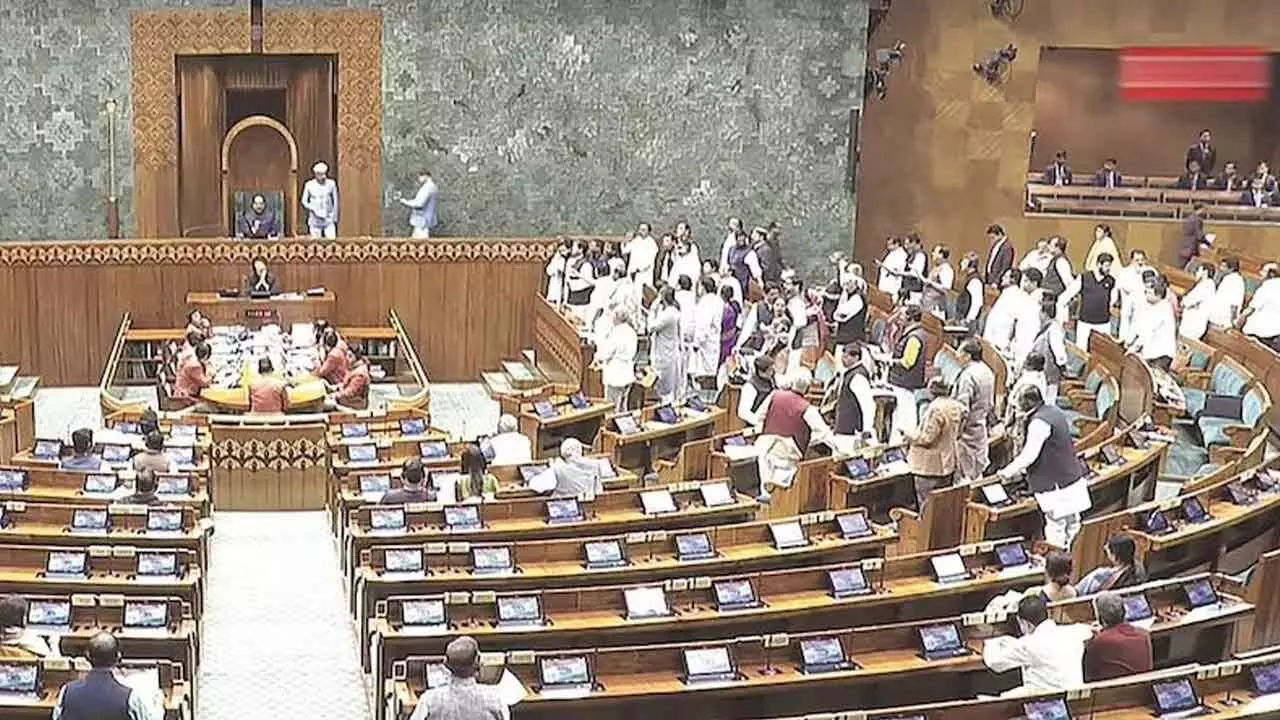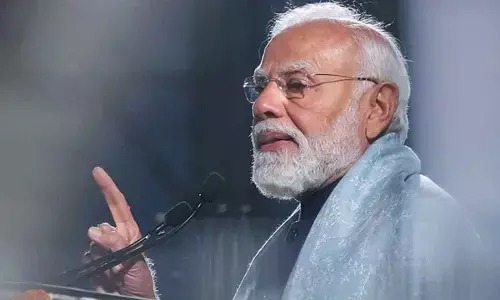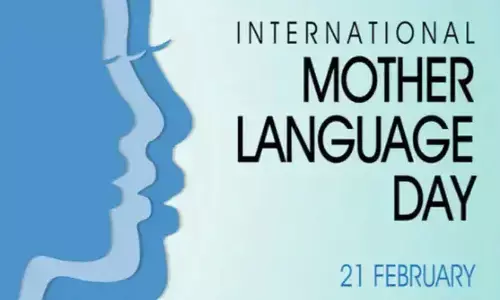Waqf Bill: Reform or Rhetoric?

Waqf Act 2025: SC Halts Appointments, Seeks Govt Response
It seemed many opposition members were less focused on facts and more on fueling communal rhetoric. There seemed to be an undercurrent—particularly among Congress members and others from the INDIA bloc—of uncharitable remarks that left one wondering why there was such visible hostility directed towards Hindus. It was particularly shocking to hear some Congress members make statements like, “BJP Hindu Pakistan bana rahi hai,” or “Your ego is your enemy” and “after batenge tho katenge” you are showing love for muslims you are showing love for Muslims. There were also ominous comments like, “Dekhlenge elections mein—you will be wiped out by Muslims. Opposition parties—more concerned with preserving vote banks—refuse to acknowledge that the current system is failing Muslim communities. Rampant encroachments on waqf land across India go unresolved. In Telangana alone, there are court cases involving roughly 55,000 acres. Instead of working toward solutions, the opposition seems intent on preserving a broken system for political gain
Though the Waqf Bill has been passed by both Houses of Parliament and now awaits the President’s assent, the political drama is far from over. Protests, defiance, and street agitations have erupted in West Bengal, Gujarat, Mumbai, Jammu, and Tamil Nadu. An elderly Muslim, Javid Saifi, was even attacked outside a mosque in Sambhal for supporting the bill.
Street protest is a democratic right, but when the outrage is politically motivated rather than fact-based, it raises questions. The speed with which Congress MP Mohd Javed and AIMIM chief Asaduddin Owaisi rushed to the Supreme Court—before the President’s assent—signals the legal battles ahead.
While the bill’s constitutional validity awaits the Supreme Court’s interpretation, it’s worth reviewing what transpired in Parliament. Lok Sabha spent over 12 hours on debate; and Rajya Sabha, 13. But beyond numbers, the rhetoric, particularly from the INDIA bloc and Congress members, stood out.
To observers like me, it seemed many opposition members were less focused on facts and more on fueling communal rhetoric. Statements like “BJP Hindu Pakistan bana rahi hai,” “Your ego is your enemy,” and “You will be wiped out by Muslims in elections,” were deeply polarising. Even senior leaders like Kapil Sibal used phrases like “You Hindus, your temples,” sparking further unease.
Some even questioned whether the same law would apply to Tirumala Tirupati Devasthanams (TTD) and Ram Mandir. This argument, however, misses the point. TTD and Ram Mandir are religious institutions protected under Article 26 of the Constitution, which allows religious groups to manage their own affairs. In contrast, Waqf Boards are statutory bodies managing charitable endowments meant for social welfare—schools, mosques, hospitals, and support for the needy. Once a property is declared as belonging to waqf, it cannot be sold or inherited; it is to be used perpetually for the intended charitable cause.
Despite this clear legal distinction, Parliament debates blurred lines for political mileage. Many protestors on the streets—linked to AIMIM, AIMPLB, TMC, and Congress—seemed driven more by political narrative than real constitutional concerns.
Throughout the discussion, those of us who closely followed the debate couldn’t help but notice a disturbing trend. There seemed to be an undercurrent—particularly among Congress members and others from the INDIA bloc—of uncharitable remarks that left one wondering why there was such visible hostility directed towards Hindus. Why this persistent rhetoric against Hindus? Why the continued reliance on appeasement politics? These are questions worth a ten trillion-dollar answer.
It was particularly shocking to hear some Congress members make statements like, “BJP Hindu Pakistan bana rahi hai,” or “Your ego is your enemy” and “after batenge tho katenge” you are showing love for Muslims. Even senior and otherwise sober leaders like Kapil Sibal used divisive language such as “You Hindus, your temples.” There were also ominous comments like, “Dekhlenge elections mein—you will be wiped out by Muslims.”
Historically, the Congress has been opposed to reforms related to the Muslim community, notably after the 1985 Shah Bano case. Shah Bano, a 62-year-old Muslim woman, filed for maintenance under Section 123 of the CrPC after being divorced via triple talaq. The Supreme Court ruled in her favor in 1985, granting her maintenance.
This verdict, however, was overturned by the Rajiv Gandhi government under pressure from Muslim hardliners. Arif Mohammad Khan, then a minister and now the Governor of Bihar, supported the Supreme Court verdict and passionately defended the Supreme Court judgment in the Shah Bano case on the floor of Parliament. A dejected Arif Mohammad Khan decided to walk out of the Rajiv Gandhi Cabinet and quit the Congress party. He stood his ground, refusing to withdraw his resignation despite efforts by senior leaders like Arjun Singh and P V Narasimha Rao.
I was privy to these developments as a young reporter in Delhi and in an informal chat with me, Arif bhai had hinted at his likely move a day before he quit Congress.
It took 33 years to rectify that decision. In 2019, the Narendra Modi government passed the Muslim Women (Protection of Rights on Marriage) Act, which criminalised triple talaq. Congress, AIMIM, and others opposed it, too, exposing a pattern of resistance to internal community reforms.
The BJP maintains that the Waqf Bill is designed to modernise the management of Waqf properties and safeguard heritage sites. It also seeks to bring transparency, encourage social welfare, and enhance coordination between Waqf Boards and local authorities.
Yet, the opposition mounted a 4D attack: “Dilute, Defame, Divide, Disenfranchise.” Sonia Gandhi declared in Rajya Sabha that the bill was “bulldozed,” prompting Speaker Om Birla to rebuke her remarks as “most unfortunate” and damaging to the dignity of Parliament.
Strangely, Leader of Opposition Rahul Gandhi—who often complains about being denied the chance to speak—chose silence on the Waqf Bill. Priyanka Gandhi, meanwhile, remained in Wayanad, where Congress is in alliance with the Indian Union Muslim League (IUML). Instead of contributing to the debate, Rahul raised issues like Trump’s trade war and China’s incursion into the Indian territory but avoided the Waqf Bill altogether. No one from the opposition adequately explained why the Waqf Board, which owns the second-largest landholding in India after Railways and Defence, generates such little revenue—or why there’s resistance to making its functioning more accountable.
According to Sachar Committee report in 2006, the total Waqf land in India in over 6 lakh Waqf properties is approximately 8 lakh acres. But the revenue generated is around ₹163 crore to ₹200 crore (as per Central Waqf Council data from recent years). But the estimated potential revenue is between ₹10,000 crore to ₹12,000 crore annually, if properly developed and managed.
Consider the reforms led by Dr Darakhshan Andrabi, Chairperson of the Jammu and Kashmir Waqf Board. Under her leadership, the Board’s income grew from ₹24.95 crore in 2019-20 to ₹40.24 crore in 2022-23. This financial boost allowed for long-overdue employee benefits. On March 29, 2025, she announced a sweeping pay revision for temporary staff. Monthly wages increased to ₹18,000 for skilled workers, ₹16,000 for semi-skilled, and ₹15,000 for unskilled workers—a 200-400% hike. Regular employees, Imaams, Khateebs, pensioners, and family pensioners received a 20% raise.
These are the reforms the Waqf Bill aims to implement nationwide. But opposition parties—more concerned with preserving vote banks—refuse to acknowledge that the current system is failing Muslim communities. Rampant encroachments on waqf land across India go unresolved. In Telangana alone, there are court cases involving roughly 55,000 acres.
Instead of working toward solutions, the opposition seems intent on preserving a broken system for political gain. Is this the INDIA bloc’s model of democracy? If the goal is justice and transparency, reforms are inevitable. But if the goal is electoral arithmetic, then real progress will always be held hostage by political theatrics.








